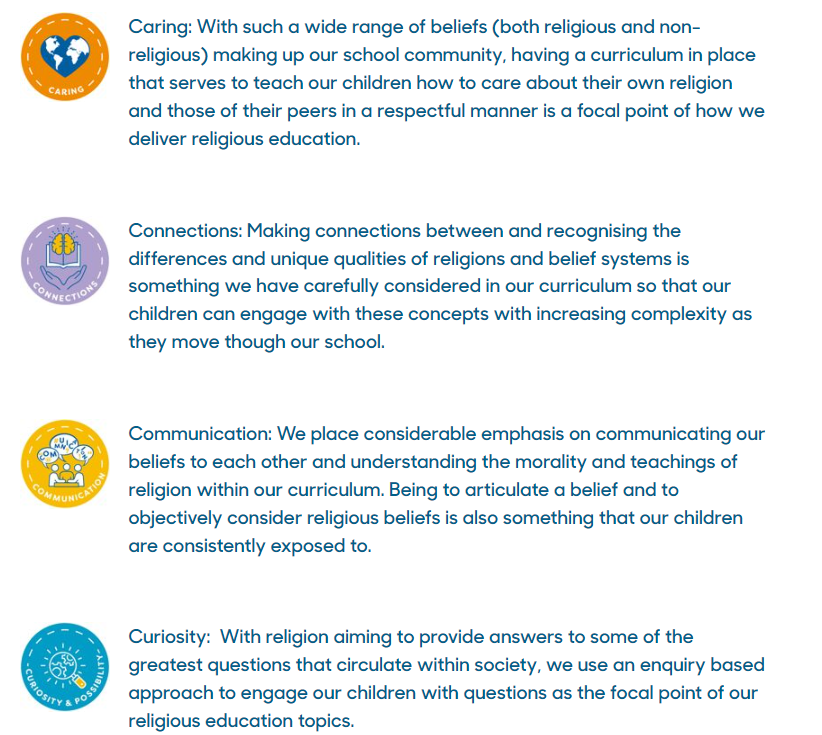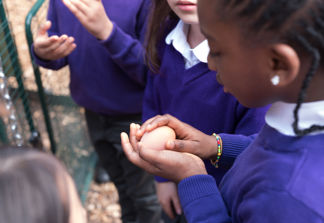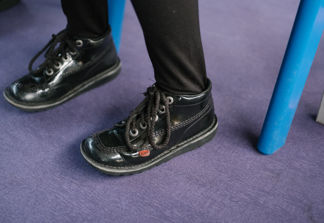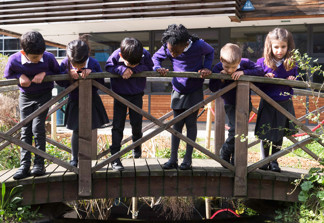- Home
- Hugh Myddelton
- Curriculum
- Religious Education
Religious Education
The principal aim of Religious Education is to engage pupils in systematic enquiry into some of the significant human questions which religion and world-views address, so that they can develop the understanding and skills needed to appreciate and appraise varied responses to these questions, as well as develop responses of their own.

Religious Education (RE) is part of the curriculum that all schools must provide for pupils aged 4 - 18. Differing from other subjects in the curriculum, where there are national programmes of study, the programme for RE in each Local Authority (LA) is locally agreed.
The title of the syllabus used to support with planning is ‘Exploring Beliefs, Celebrating Diversity’. It is called this because RE gives children and young people the opportunity to:
1. Learn about religion and worldviews.
2. Express and communicate ideas about religion and worldviews.
3. Gain and deploy skills needed for the study of religion and worldviews.
RE also provides an opportunity for children and young people to understand each other’s beliefs, practices and ways of life. RE makes a valuable contribution to the personal development of children and young people, particularly their spiritual, moral, social, cultural and intellectual development.
RE significantly enhances the growth of every child and young people, regardless of whether they come from a religious family background or not.
Alongside all other aspects of school life, RE should contribute to the development and demonstration of pupils’ skills and attitudes that will allow them to participate fully in and contribute positively to life in modern Britain.
To provide challenge and to identify the progress that children and young people make in RE, the agreed syllabus suggests that, when appropriate, ‘Steps to Progress’ are used to chart progress in each of three areas of the subject:
1. Learning about religion and worldviews.
2. Expressing and communicating ideas about religion and worldviews.
3. Gaining and deploying skills needed for the study of religion and worldviews.
In the Early Years Foundation Stage (ages 3 to 5), the agreed syllabus suggests that the school experience of young children should include a range of RE-related activities that follow three themes:
• Celebrating special times
• Stories and what they tell us
• Aspects of identity and relationships.
As children explore these themes across their time in EYFS they think about two Big Questions ‘What is special to me?’ and ‘What is special to me and others?’
In Key Stage 1 (ages 5 - 7), the syllabus requires schools to reflect that the religious traditions in Great Britain are in the main Christian, whilst taking account of the teaching and practices of the other principal religions presented in Great Britain. This syllabus expects schools to provide opportunities for pupils to be taught about Christianity and at least one other principal religion, a religious community with a significant local presence and a secular worldview.
In Year 1, the big question is ‘What does it mean to belong?’ - investigating the relation between religion and belonging throughout the year.
In Year 2, it is ‘What can we learn from special stories?’ - investigating the relationship between religious stories and action.
In Key Stage 2 (ages 7 - 11), the syllabus requires schools to include six RE units in each year. This syllabus expects schools to provide opportunities for pupils to be taught about Christianity and at least two other principal religions, a religious community with a significant local presence and a secular worldview.
In Year 3, the big question is ‘How are symbols and sayings important in religion?’ - investigating the relationship between religion and symbols.
In Year 4, the big question is ‘What is important to people in my local community?’ - investigating the relationship between religion and our neighbourhood.
In Year 5, the big question is ‘What impact do beliefs have on actions?’ - investigating the relationship between beliefs and actions.
In Year 6, ‘How important are the similarities and differences between and within religions and worldviews?’ -investigating the relationship between secular and religious worldviews.
If you have any questions about RE at Hugh Myddelton School, then please do get in contact with the schools RE lead.
London Borough of Islington RE curriculum document can be viewed here.





